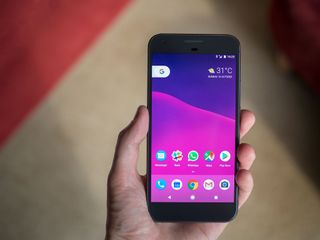The Pixel is selling out because Google finally got its ads right

Google's Pixels made up 12.3% of activations at Verizon stores during the holiday quarter, a number that should make both companies very happy in the quest to unseat the dominance of Samsung and Apple.
According to data captured by several research firms and compiled by Bloomberg, Google reportedly sold 552,000 Pixels in the fourth quarter, which was higher than the company anticipated, and has made it difficult to replenish stock both online at at carriers.
Google reportedly sold 552,000 Pixels in the fourth quarter, which was higher than the company anticipated.
Most Americans still buy their phones through carriers, despite the availability of low- or no-interest financing options from the manufacturers themselves; it is an entrenched practice after years of purchasing devices through subsidies and contracts.
Of course, selling fewer than a million Pixels isn't a triumph when compared directly to the aforementioned juggernauts of the Galaxy S7 and iPhone 7 series, both of which reportedly sold millions of units during the same fourth quarter period, but for a new brand with very little retail presence, there is much for Google to celebrate.
The mindshare was directly related to the ubiquity of ads shown throughout North America, from billboards to television spots to subway takeovers. And while back in November, some analysts predicted sales three times their actual amounts — three million as opposed to the approximately one million altogether — demand is still higher than availability, and will continue to be for some time.
Google reportedly spent more than twice its average TV budget — over $100 million — to promote the Pixel, with Verizon following with more than $50 million to grow awareness of the new brand for its stores.
Given that the Pixel is a high-end phone with the same starting $649 price tag of the Galaxy S7, it's clear that Google is on to something, and will continue to reap the benefits of an ad campaign well run — even as it struggles to fill demand on the supply side.
Be an expert in 5 minutes
Get the latest news from Android Central, your trusted companion in the world of Android
Daniel Bader was a former Android Central Editor-in-Chief and Executive Editor for iMore and Windows Central.

